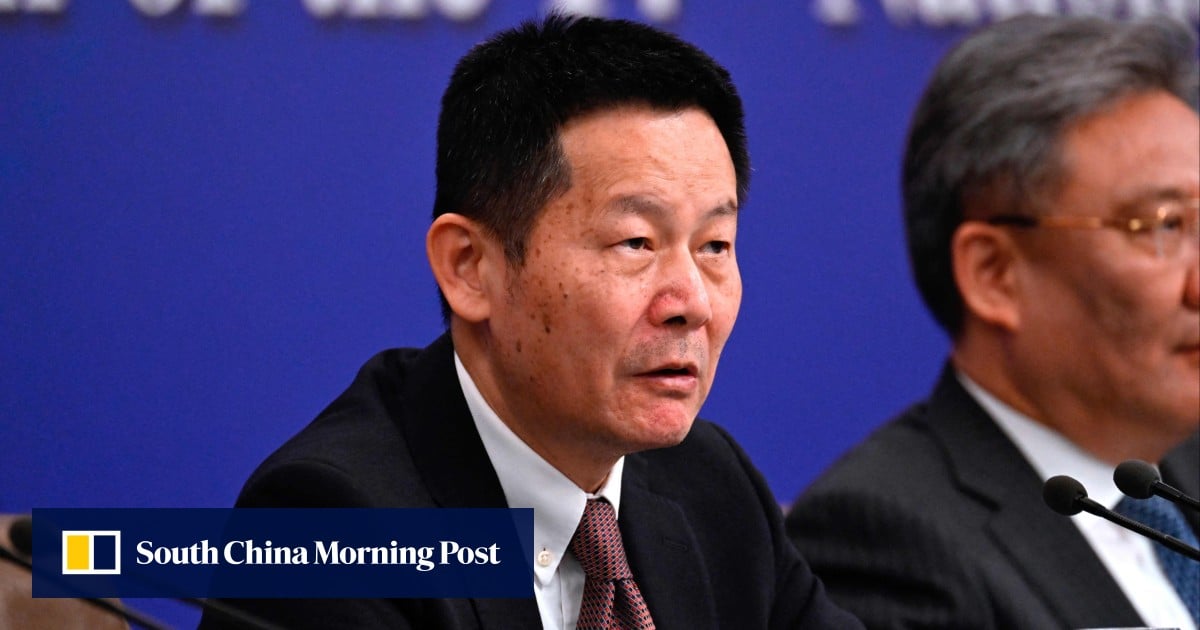However, he added, “if the market gets out of control and experiences huge irrational shake-ups, liquidity runs, investor panic, a major investment confidence breakdown … [the commission] should make resolute moves to fix dysfunction.”
We will keep our eyes open to strengthen early correction of problem institutions and enterprises
“In our next stage of work, we have to exponentially increase the scale and the number of times we do on-site checking,” he said.
“We will keep our eyes open to strengthen early correction of problem institutions and enterprises, and handle a variety of risks as early as possible.”
China market regulator’s rescue act seeks to guard financial and social stability
China market regulator’s rescue act seeks to guard financial and social stability
Hong Kong’s benchmark Hang Seng Index dropped 9.2 per cent in January, followed by a 6.6 per cent rise last month. It was up 1.7 per cent by close of business Wednesday.
Wu, who briefly ran the Shanghai Stock Exchange after a rout in 2015, said the overall quality of the market will be enhanced by more thorough checks before initial public offerings (IPOs), and also by increasing the frequency of regular checks on public companies to more easily spot any illegal action.
Protecting the interests of smaller investors is the single most important mission for us in a market like China
The CSRC will also enhance its delisting system for chronic offenders, he said – by force if necessary.
When discussing examples, Wu mentioned big-ticket fines that had been announced a week prior, and added some recent cases involving insider trading or market manipulation have been transferred to the proper authorities for criminal charges.
“Protecting the interests of smaller investors is the single most important mission for us in a market like China, which is dominated by such investors,” he said.
Wu also said listed companies should be mandated to give dividends to shareholders, and pledged the regulator would crack down on large shareholders’ illegal or otherwise dishonest reduction of stakes – both of which have been persistent concerns.
The securities chief also affirmed the need for effective regulation of quant trading – trades conducted with the heavy use of automation and algorithms – to ensure market fairness.
All this primary activity drains liquidity and expands the float, dragging performance down
As for regulatory personnel, Wu said he will adopt a strict management approach for staff to guarantee quality of work and combat corruption.
Louis-Vincent Gave, founding partner and CEO at research firm Gavekal, said over the past decade there have been several issues related to the capital markets, affecting areas like IPOs and rights.
“All this primary activity drains liquidity and expands the float, dragging performance down,” he said.
Gave said further opening up China’s financial market would help salvage the downturn.
“If you do that, you will remove the one hurdle a lot of investors have about investing in China: the fear that one’s money could be trapped.”
Additional reporting by Mia Nulimaimaiti and Luna Sun






![Kailash Kher opens up about bond with son, love for tea and more [Exclusive] Kailash Kher opens up about bond with son, love for tea and more [Exclusive]](https://st1.bollywoodlife.com/wp-content/uploads/2024/11/211120241732198149.jpeg)
